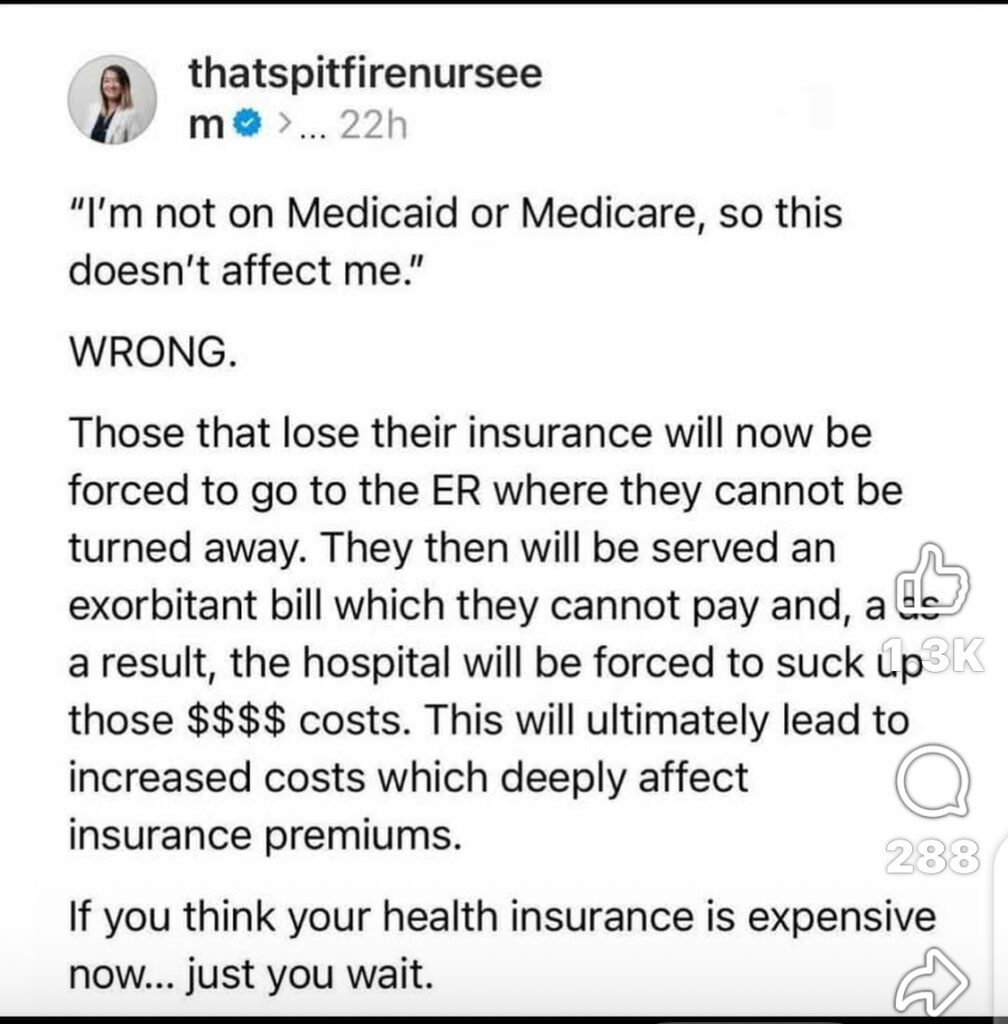Fact-Check Summary
The claim that uninsured patients who are unable to pay for emergency room (ER) visits cause hospitals to accrue uncompensated care, which then results in higher insurance premiums for others, is partly accurate but ultimately oversimplified. Federal law (EMTALA) requires hospitals to treat all patients in emergencies regardless of insurance status, leading to genuine uncompensated care expenses. However, while some studies confirm hospitals incur billions in such costs, the idea that these are directly and significantly “shifted” to insured patients as higher premiums lacks clear and strong empirical support. Most research finds that while cost-shifting might occur to a modest degree, the primary drivers of insurance premium increases are unrelated factors such as rising healthcare expenses, provider consolidation, and the overall cost of medical innovation.
Belief Alignment Analysis
The content reminds readers of America’s commitment to providing emergency care for all, a principle that reflects values of inclusivity and fairness in healthcare access. However, the meme’s framing risks inflaming division by assigning blame to uninsured individuals rather than addressing the wider systemic contributors to rising premiums. Democratic values are best served by analyses that present the complex interplay of factors influencing healthcare costs without vilifying vulnerable populations or oversimplifying policy impacts.
Opinion
While it is factually correct that hospitals must treat uninsured individuals in emergencies and that this results in uncompensated costs, blaming premium increases primarily on these patients overlooks bigger, more influential trends. Real solutions for stable and fair insurance premiums include system-wide reforms—such as curbing excessive provider consolidation, negotiating drug costs, and expanding coverage—not scapegoating those who face barriers to insurance access. Honest public dialogue should focus on actionable reforms rather than perpetuating divisive myths.
TLDR
Uninsured ER use creates hospital costs which are real, but these are not the main reason insurance premiums rise. Most research suggests other factors have far greater impact, and tackling those will better serve all Americans seeking affordable, fair healthcare.
Claim: Uninsured patients using ER services drive up hospital uncompensated care, which hospitals then pass on to insured patients via higher premiums.
Fact: While EMTALA legally requires hospitals to treat all emergency patients and uncompensated care costs are substantial, most studies show only minimal cost-shifting to insured patients. The majority of premium increases are due to prescription drug prices, provider market power, and technological advancements—not primarily to uncompensated care.
Opinion: Instead of blaming the uninsured, America should focus reform efforts on the biggest drivers of healthcare costs and work toward ensuring quality coverage for everyone. Simplistic blame misdirects much-needed energy away from achievable, fairer reforms.
